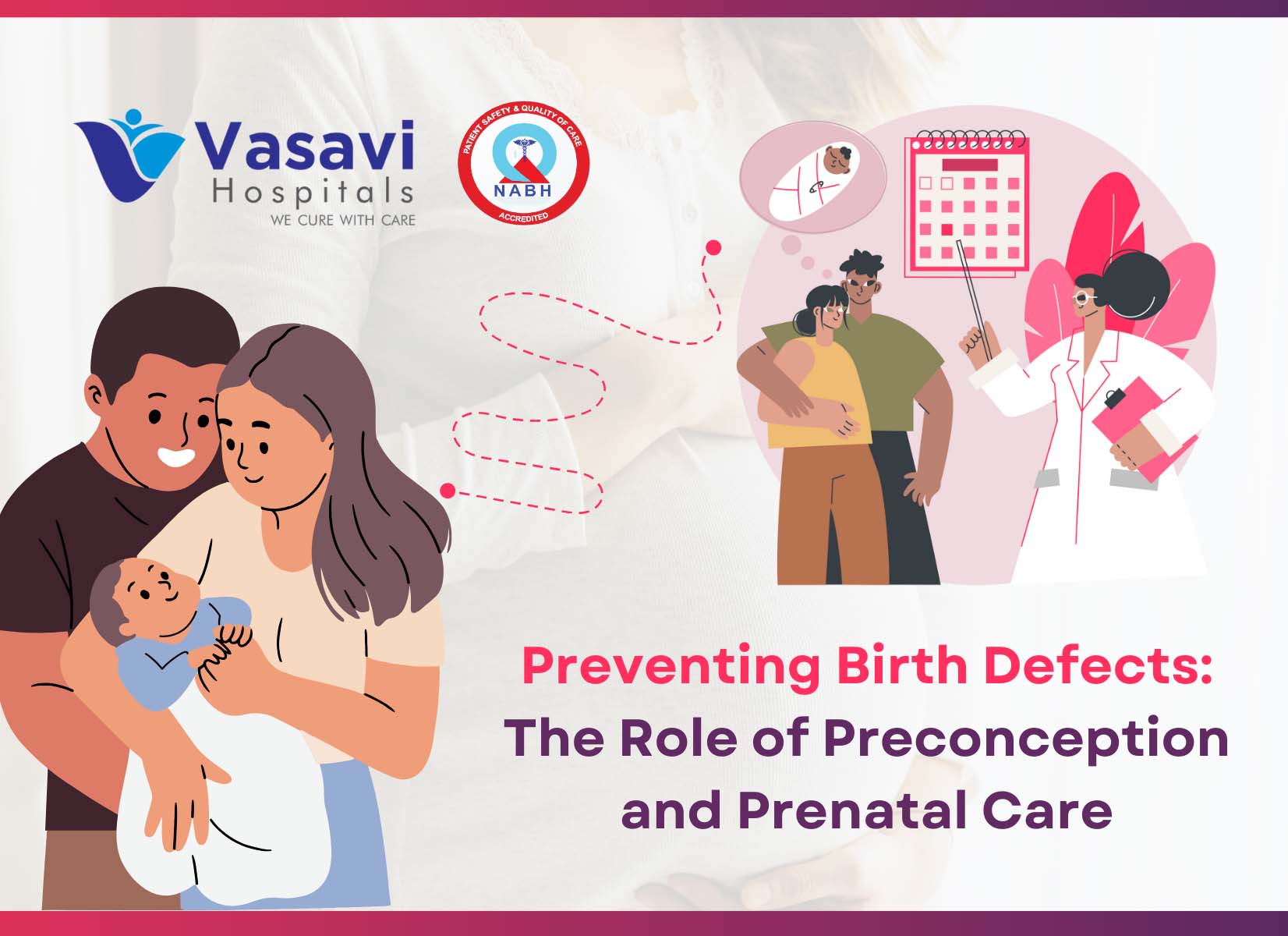Birth defects can have a significant impact on the health and well-being of a child. However, many birth defects are preventable through proper preconception and prenatal care. Ensuring optimal health for both the mother and the baby begins long before conception and continues throughout pregnancy. This guide highlights the steps to prevent birth defects and emphasizes the importance of regular care.
1. Understanding Birth Defects
Birth defects are structural or functional abnormalities that occur during pregnancy and affect a baby’s physical or mental development. These can range from minor issues, such as cleft lip, to more severe conditions, like heart defects or neural tube defects. While some defects are caused by genetic factors, others can be influenced by environmental factors, lifestyle choices, and maternal health conditions.
2. Importance of Preconception Care
Preconception care focuses on optimizing a woman’s health before she becomes pregnant. This step is crucial in reducing the risk of birth defects. Key aspects of preconception care include:
- Nutritional Optimization: Women planning for pregnancy should take folic acid supplements as it significantly reduces the risk of neural tube defects. Consuming a balanced diet rich in vitamins and minerals ensures that the body is ready to support a healthy pregnancy.
- Medical Check-ups: Consulting a gynecologist specialist near me before conceiving helps identify and address any underlying health issues such as diabetes, hypertension, or thyroid disorders.
- Lifestyle Adjustments: Avoiding alcohol, smoking, and drug use is critical during the preconception phase, as these substances can affect fetal development.
- Vaccinations: Ensuring vaccinations, such as rubella, are up-to-date and prevent infections that can harm the baby during pregnancy.
3. Prenatal Care: A Crucial Step in Prevention
Prenatal care refers to the healthcare provided during pregnancy. Regular visits to a healthcare provider ensure that both the mother and baby are healthy throughout pregnancy. Some vital aspects include:
- Early and Regular Check-ups: Visiting a gynecologist near me for routine ultrasounds and blood tests helps monitor the baby’s growth and detect any abnormalities early.
- Screening for Infections: Untreated infections during pregnancy, such as toxoplasmosis or sexually transmitted infections (STIs), can lead to complications or birth defects.
- Managing Chronic Conditions: Conditions like diabetes, high blood pressure, or obesity must be carefully managed during pregnancy to reduce risks.
- Healthy Weight Gain: Gaining the right amount of weight during pregnancy is essential to avoid complications such as preterm birth or low birth weight.
- Education on Medications: Certain medications can harm the fetus. Consult your doctor about which medications are safe to use during pregnancy.
4. Folic Acid: A Key Nutrient in Preventing Defects
Folic acid is a B vitamin that plays a significant role in reducing the risk of neural tube defects, such as spina bifida and anencephaly. Women are advised to take at least 400 micrograms of folic acid daily before conception and during early pregnancy. This nutrient is found in fortified cereals, leafy greens, citrus fruits, and legumes.
5. Avoid Harmful Exposures
Several environmental and lifestyle factors can increase the risk of birth defects:
- Alcohol and Tobacco: Avoiding alcohol and tobacco during pregnancy is non-negotiable. Both substances are linked to developmental issues in babies.
- Radiation and Chemicals: Avoid exposure to harmful chemicals, pesticides, and radiation, especially in the workplace.
- Safe Food Practices: Pregnant women should avoid consuming raw or undercooked meat, unpasteurized dairy products, and high-mercury fish, as these can lead to infections or developmental issues in the fetus.
6. Importance of Genetic Counseling
If there is a family history of genetic disorders or if you’re over 35, genetic counseling can provide insights into potential risks. A healthcare provider may recommend certain tests to understand the genetic makeup of both parents and identify any predispositions.
7. Managing Stress and Mental Health
Mental health plays a crucial role in pregnancy outcomes. High levels of stress can increase the risk of preterm birth and low birth weight. Pregnant women should practice relaxation techniques such as yoga, meditation, and mindfulness. Seeking support from family, friends, or a therapist is equally important.
8. Choosing the Right Healthcare Provider
Selecting a trusted healthcare provider ensures that you receive the best care during your journey to motherhood. The best gynecologist hospital in Bangalore offers advanced facilities, expert doctors, and comprehensive prenatal care to support a healthy pregnancy.
9. Birth Planning and Preparedness
Preparing for the baby’s arrival involves creating a birth plan. Discuss your preferences with a gynecologist in Kumaraswamy Layout to understand your delivery options and make informed decisions.
10. Spread Awareness About Prevention
Communities can play a significant role in preventing birth defects by educating women about the importance of preconception and prenatal care. Encouraging regular check-ups and healthy lifestyle choices can make a lasting impact on future generations.
Conclusion
Preventing birth defects is possible with proper preconception and prenatal care. From maintaining a healthy lifestyle to staying informed about medical conditions, every step counts toward ensuring the health of both mother and baby. At Vasavi Hospitals, we are committed to providing exceptional care to help you navigate your pregnancy journey confidently.
Schedule a consultation today to begin your journey toward a healthy pregnancy and happy parenthood.
